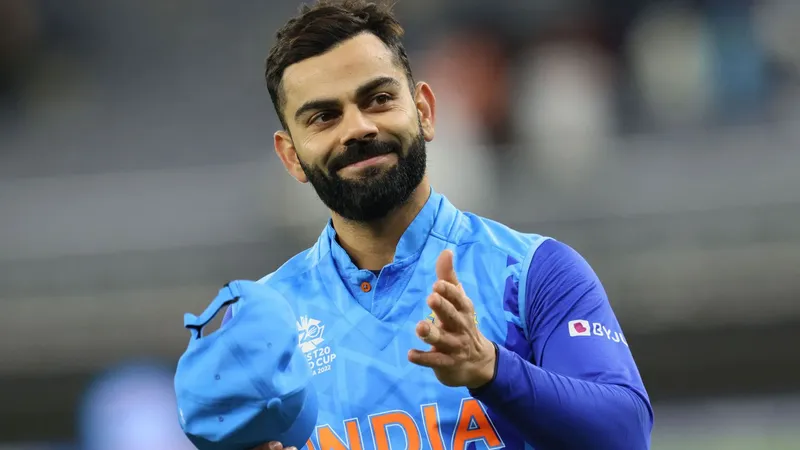Cricket in the Olympics: What’s the big deal?
Los Angeles will pad up for cricket as it hosts the Olympics in 2028. Here’s why the development is seen as a big win for the sport, the Olympic Games, and those associated with both.
Come 2028, Olympics—the world’s most prestigious sporting spectacle will field five additional sporting events—baseball, flag football, lacrosse, squash, and, yes, cricket.
T20 cricket for both men and women will be in the mix for the first time at the Olympic Games to be held in Los Angeles. The only time cricket has been played at the Olympics was during the 1900 summer edition in Paris with a one-off Test for men, between Great Britain and France, which was won by the former.
The addition of the modern-day avatar of cricket at the LA Olympics—as expected—brought a flurry of excited reactions from all and sundry—ranging from sportspersons and cricket officials to Bollywood stars and other celebrities.
Now that the dust has settled, it’s time to dig deeper.
It’s been about three weeks since the announcement came in—enough time for passionate cricket fans to dissect the development and its import in the larger scheme of things.
YS Life spoke to avid followers of the game to understand how they view the landmark addition, which is expected to open up a new frontier in the history of the Games.
Nurturing passion and hope
Girish Kalyanaraman, a marketing executive in Mumbai, is excited for two reasons.
One, there will be one more big-ticket cricketing event, not that there is a dearth of events in the cricketing calendar now. “More cricket is what we all need,” jokes Kalyanaraman, a passionate supporter of Test cricket and the Chennai Super Kings IPL team.
And, two, on a more serious note, he believes, an Olympics card will take cricket beyond borders to newer parts of the world and make the game popular in countries that are hitherto untouched by the sport.
Jaanvi Singh, a lawyer from Delhi, calls cricket’s inclusion a positive step towards expanding the sport and hopes the smaller nations get recognised more in order to make the sport more inclusive.

Los Angeles Memorial Coliseum is the first stadium to have hosted the Olympics twice, in 1932 and 1984. Los Angeles will again host the Summer Olympics in 2028. This edition will see five additional sports, including T20 cricket for men and women. Image credit: Shutterstock
Sanasi Kelkar, a former sports journalist from Pune, has a slightly contrarian view.
“I feel professional sports, especially professional team sports, shouldn't be a part of Olympics. Olympics were (originally) meant to be for amateur sports. And it’s good to see other sportspersons take the limelight for that month (when the Olympic Games are on) in an otherwise cricket crazy country,” says Kelkar, a self-confessed Steve Waugh fan who used to run an unofficial website on her cricketing hero back in the day.
Having said that, she adds that it would be a proud moment for cricketers to be part of the Olympic parade and stand on the podium.
Cricket’s role at Olympics could go beyond popularising the game and lead to a spillover effect on other sports—as far as India is concerned.
When cricket goes to the Olympics, it could inspire millions of young Indians to get excited about other games and take up non-cricketing sports and athletics as well, hopes Vaitheeswaran K, a serial entrepreneur and a cricket connoisseur.
This not-for-profit is using the power of sport to transform lives of vulnerable children
Economics at play
No discussion pertaining to sports, and cricket in particular, can overlook the role of economics and brand building.
London-based global data, insights, and consulting company Kantar forecast US ad revenue of $2.25 billion for the live broadcast of the 2020 Tokyo Olympic Games—more than 20% higher than the 2016 Games and an all-time high.
Vaitheeswaran says sports is a channel through which business and economics are driven, and sports cannot develop without sponsors.
“The entire population in the subcontinent that follows the game is around two billion people. That’s 25% of the world population … Major sponsors of the Olympics are consumer brands. Why miss this opportunity to build brands and consumer awareness?” points out Vaitheeswaran, who has umpired cricket matches at schools and the lower division league.
The major sponsors and partners of the 2028 Games include Nike, Ralph Lauren, Delta, Coca-Cola, Airbnb, Omega, Visa and Oakley.
Furthermore, having lost out on a serious business opportunity in EPL football, the United States of America does not want to miss the bus with the next big thing—cricket, adds Vaitheeswaran.
The United States has drawn up aggressive plans to tap into the cricketing ecosystem—with Major League Cricket, co-hosting the T20 World Cup in 2024 with West Indies, and the LA Olympics in 2028.
Come for the World Cup, stay for the culture: an insider’s guide to Ahmedabad
India and the Games
Last month, the International Olympic Committee (IOC) session in Mumbai voted in favour of cricket and four other sports at the Los Angeles Olympics.
Indian superstar Virat Kohli's global popularity is said to have played a key role in pitching cricket at the 2028 Olympics.
“Virat is the third-most followed athlete in the world on social media with 314 million followers. That’s more than LeBron James, Tom Brady and Tiger Woods combined. This is the ultimate win-win for LA 28,” Niccolo Campriani, Sports Director of Los Angeles 2028 Organising Committee, had said, at the IOC session.
While Kohli is being touted as a trump card at the Olympics, the big question is will he play in 2028, given that he would be close to 40 years of age.
“I would love to see him play and get that gold medal, but only because I think he would love to end his career on that note,” says Kelkar.
“Kohli playing at 40 is not infeasible, but the issue is does he want to play. He could probably be the face of the sport in the markets IOC wants to target and popularise the game in,” posits Vaitheeswaran.

Indian superstar Virat Kohli's global popularity is said to have played a key role in pitching cricket at the 2028 Olympics. While his fitness has never been under question, the issue is will he want to play in 2028, when he will be close to 40 years of age? Image credit: ICC
Five years down the line, it is the younger players who will be under the spotlight for their talent and potential.
Jaanvi Singh, who considers cricket a “happy place”, is eager to watch players such as Shubman Gill, Rishabh Pant, Jasprit Bumrah, Prasidh Krishna, Riyan Parag, Jemimah Rodrigues, Harmanpreet Kaur, Richa Ghosh, Smriti Mandhana, and Renuka Singh in action.
As far as performance at the Games goes, Kalyanaraman is upbeat about India’s chances in cricket and hopes the team will bring home the much-coveted Olympic gold.
“India is very well positioned as we saw with the recent Asian Games, where we could afford to send our second-string side and still win the tournament,” says Kalyanaraman, whose love for the game extends beyond armchair analysis. He is also an active player at a cricket league for school dads in Mumbai.
Spirit of the Games
There’s more to cricket at the Olympics apart from performance and personal milestones—considering that the stated values of Olympics include friendship and respect. These values are the foundation over which the Olympic movement defines its activities with a view to building a better world.
Kelkar wishes cricketing heroes would attend other sporting events and cheer participants across the board, keeping with the true spirit of the Games.
“If you see other pro athletes, say of tennis or NBA, they don’t always win gold but they play there for the experience of staying in the village and being a part of the country’s contingent,” she says.
Now that would live up to the motto of Olympics, beyond the gold, and make it all about the guts and glory of sport and the togetherness it represents.
Citius, Altius, Fortius – Communis! Faster, Higher, Stronger – Together!
Edited by Affirunisa Kankudti







